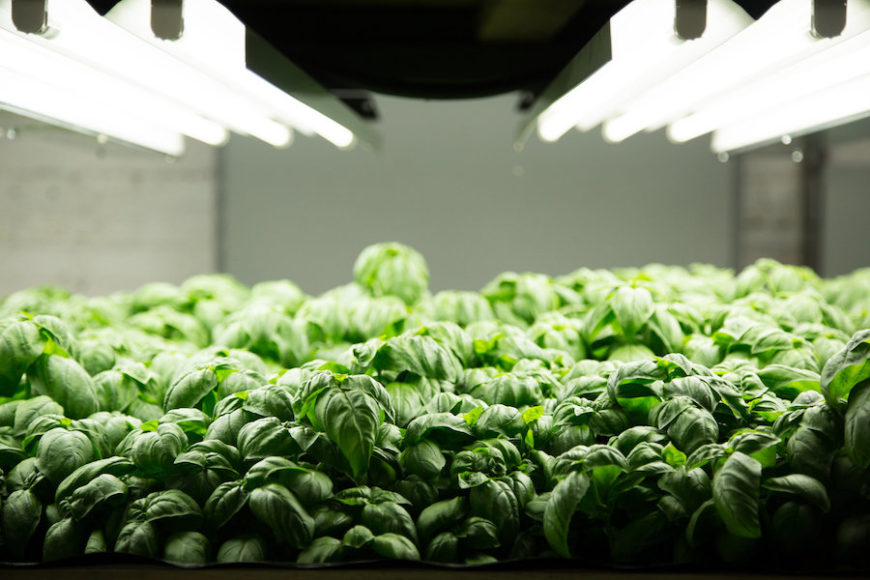Editor’s note: In anticipation of our upcoming Food Loves Tech event, we’ve launched a regular column to explore new and intriguing trends in food and drink. Read more about and get your tickets to Food Loves Tech here.
Verticulture Farms is an aquaponic farm located in Brooklyn’s Williamsburg neighborhood. The business raised initial funding via a successful IndieGoGo campaign. We spoke to the company’s co-founder, Miles Crettien, to learn more:
Edible Brooklyn: Tell me more about your business.
Miles Crettien: Verticulture Farms designs, builds and operates aquaponics farms using vertical growing techniques to maximize productivity and profitability within otherwise underutilized space in urban environments. We sell our branded fish and produce throughout New York to local retail and wholesale clients.
EB: Why did you decide to launch the business?
MC: As a team, we all have backgrounds in either agriculture or ecology/biology. As a result, we wanted to find a way to farm meaningfully in the city. Our model was founded on a common interest in developing a solution to a broken food production system. That’s why sustainability and resilience as well as social equity are built into our business model from the ground up. None of us would be working as hard as we are on this if getting rich off of farming was the sole motivator to this endeavor.
EB: New York City’s an expensive place to kickstart a business. Why did you launch here?
MC: Since we were all based in New York City when we met, it made sense to launch the business close to where we lived. Luckily, it just so happens there’s currently $600 million in unmet demand for local produce in New York. The market is wide open for a business like ours to expand and scale.
EB: How does technology factor into your farm?
MC: We’re currently developing growing systems including state of the art monitoring and lighting to increase the productivity and quality of our products. We combine this technology with natural ecology to produce better tasting vegetables and fish while recycling up to 95 percent of the water we use.
EB: What crops do you harvest? Is it seasonal or year-round production?
MC: We have a 450-square-foot prototype farm where we’re harvesting 30-40 pounds of Genovese and Thai basil each week and selling it throughout New York. We’ve tested various greens and herbs and plan to roll out a line of arugula once we’ve increased capacity at our existing location.

EB: Why did you choose the Pfizer Building as a location for your business?
MC: We’d worked with the landlord before and knew him to be a proponent of urban farming. He previously owned the building that housed Brooklyn Grange’s flagship farm. Additionally, it was appealing to be located in the same building as the various food startups we could test selling our product to. We continue to supply the larger produce buyers in the building with our basil on a weekly basis.
EB: Who are your main customers?
MC: We sell to various brick and mortar and online retailers including Foragers, Brooklyn Kitchen, Fresh Direct and Farmigo. They constitute a fair portion of our current business. We’re also looking into contracts with major retail chains in New York as well as other wholesale purchasers.
EB: Is your technology proprietary or based on existing innovation?
MC: We currently use existing technology to innovate and grow our food in the most productive and quality way possible. There are roadblocks and limitations tied to off-the-shelf componentry, so we’re investing now to develop the technologies we need to deliver better results.
EB: Do you foresee bringing this new technology to consumers?
MC: Licensing our technology is always an option but for now we’re focused on developing systems that grow the highest quality food within the parameters of our ecologically designed farming operation.
EB: What about bringing your business to other cities or places? Is that a goal for you and the team?
MC: Yes, absolutely! Our model is both modular and scalable. That means we can build these farms anywhere in the country. We’re looking at water- and climate-insecure places as potentially great markets to invest in within the next five to seven years.
EB: Sounds like an interesting long-term goal. What’s on your roadmap for 2016?
MC: We’re now looking to build a 2500 square foot farm by 2017. This will be a scaled prototype. We hope it will allow us to bring on founders full-time and prove our commercial viability to fully-serve the New York City market. We’re actively raising capital to support this effort and look forward to connecting with those interested in getting involved.
If you’d like to get involved, visit Verticulture Farms online to learn more. Photos by Dacia Pierson at Eager Hearts Photography.



